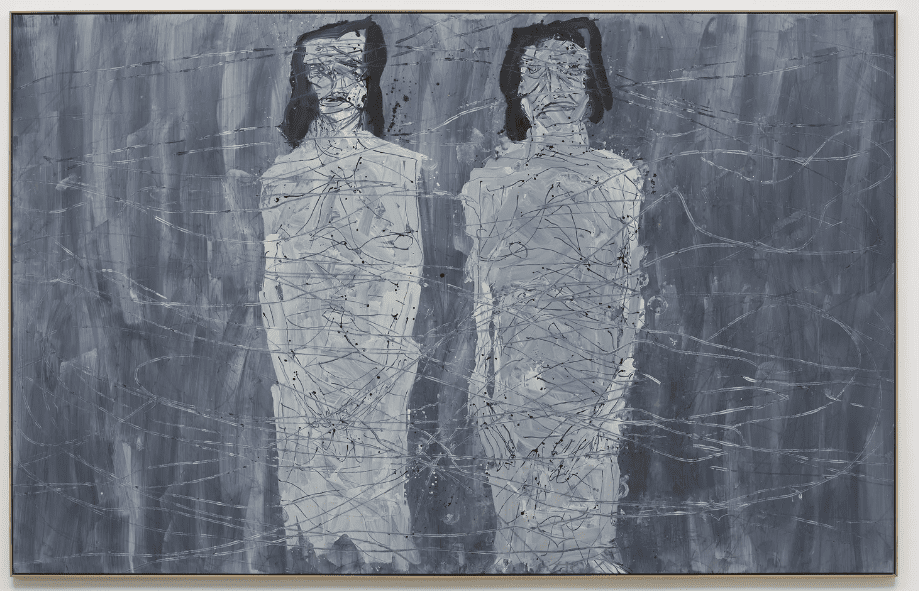[dropcap style=”font-size:100px; color:#992211;”]W[/dropcap]ith a dependable jetstream and a few good weeks of barbeque weather, Kelis may have landed herself the album of the summer.
Given that the last unbroken sequence of sunny weeks to hit the UK helped elevate Daft Punk’s warmed-over bilgecrust (surely the musical epitome of the ‘reduce, reuse, recycle’ ethic) into the nation’s hearts, it seems only fair that Kelis should bring some of that summer love to the yard with Food.
It’s certainly a record deserving of popular acclaim, despite not having a track on it which could be described as pop, exactly.  Hitting a stage of her career where diva antics would be excused, if not encouraged, Kelis neatly sidesteps the tendency to law-of-diminishing-returns Beyonce trashiness, and equally eschews the Des’ree grande doyenne approach (‘rather have a piece of toast’?!) to the role of journeywoman chanteuse.
Hitting a stage of her career where diva antics would be excused, if not encouraged, Kelis neatly sidesteps the tendency to law-of-diminishing-returns Beyonce trashiness, and equally eschews the Des’ree grande doyenne approach (‘rather have a piece of toast’?!) to the role of journeywoman chanteuse.
Instead, we have a suite of songs which, Kelis will likely claim somewhere in the promo cycle, takes her back to her roots. Sly Stone, Donna Summer, Gladys Knight – those sorts of roots (it is, after all, rare that a singer will admit to having the same Stock, Aitken and Waterman, NKOTB, 5Star, Grease-Soundtrack roots as the rest of us mortals. In music-land, there’s always a hip patriarch’s Motown vinyls to plunder).
Such reference/reverence has been attempted before, and usually met with derision. Poor hapless Duffy is the go-to example, whose jaunty efforts at chanelling a Berry Gordy vibe through her quite reasonable pipes were huffed away in a plume of withering text containing much barefaced use of the ‘paying her dues’ clause.
A great deal earlier than Duffy was the cautionary tale of Terence Trent D’Arby’s Introducing the hardline…., which, a quarter-century on, sounds a lot more valuable to posterity than most of the words penned to condemn it.
And anyway, Kelis has paid her dues, at the edgier end of urban pop. That Food is a nod of the head to the last fifty years of soul and R’n’B is no act of arrogance on her part, not least because she has the voice to carry it.
Normally when critics speak of female vocalists (after they’ve gotten the T&A part of the package out of the way) the question of ‘range’ enters the discussion. In the case of Kelis, whilst her vocal range is perfectly broad (and admirably strong across all of it), it is her register that impresses.
Hoarse and husky with the weight of experience at times, at others playful and reminiscent of En Vogue on (almost) a capella overdubbed harmonies (will R’n’B ever get over En Vogue?), Kelis Rogers has more sections to her voice than a respectable girl band, and finds a place on this album for all of them. If the glib tone of this review suggests any irreverence, it stops here. This is a striking vocal performance, in a manner that goes far and beyond the strained ‘one-word, many, many syllables’ style that TV karaoke has made popular in recent decades.
The grooves, although ostensibly Motown, draw from various sources. Opening track ‘Breakfast’ owes as much to Natasha Beddingfield’s ‘Unwritten’ as it does to the Detroit production line (and is no worse for it), whilst a South London soul production synonymous with Jessie Ware underpins ‘Jerk Ribs’, as much as the brassy fills give the track a more transatlantic provenance.
‘Forever Be’ verges on forgettable hands-in-the-air M-People knockoff until Kelis hits the lower end of her range closing the first verse. It’s a throwaway line (‘The night comes on and the moon is high’) delivered with a stunning depth of vocal. Any other artist would repeat the line, indeed build the song around it. That Kelis just leaves it there is audacious, eccentric, and the moment where the album suddenly clicks.
It’s hard not to smile at an album which seems partly the product of a capricious talent simply having fun. It’s not overtly commercial, it makes very little attempt to capture any sort of production zeitgeist (‘Milkshake’, all those years ago, proved those credentials), and it doesn’t suffer from the attentions of a commercially-minded focus group mentality demanding incessant pop hooks.
The irony being that there are pop hooks, as well as throbbing grooves and grandiose vocal moments. Enough of them scattered across the thirteen tracks to buy an a&r man a yacht, but they are placed (not squandered) with a precocious abandon at natural parts of the songs rather than at the crescendo of prefabricated structural arcs. The overall effect, after the initial confusion wears off, is simply to grin helplessly at the sheer chutzpah.
‘Runnin” switches between Dusty Springfield sultry and Mary J. Blige sweet, whilst an overdriven keyboard drone almost drowns the vocals out of the soundfield. Again, an insouciant profligacy with the vocals – not exactly the hallmark of albums by solo vocal acts. ‘Hooch’, following on, drags the brass section and bass of blaxploitation soundtracks onto a song which, thanks to deft rhythm guitar and those (this time) sugary vocals, stays on the right side of pastiche.[quote]keeps its powder dry,
thrills and teases, and
on vocal performances such
as ‘Biscuits n’ Gravy’, enthrals[/quote]
Covering Labi Siffre’s ‘Bless the Telephone’ – an acoustic guitar duet which veers dangerously into Hey There Delilah territory – seems incongruous, but has album producer Dave Sitek’s hallmarks stamped hard on it. Breathy and sincere, it’s not a show-stopper of a song, but it’s pleasant to hear an acoustic ballad sung without pathos or tongue-in-cheek Lolita irony, and it does set up nicely for the Link Wray-esque opening of ‘Friday Fish Fry’ (yes, food is a theme – she’s recently qualified as a chef).
Alas, not so strong a theme as it might be. The strident chorus of the angry trip-hoppy ‘Change’, on close listening, mentions the ‘grips of desire’. Not, as it initially seems, ‘the crisps of desire’. A pity.
And considering that ‘Friday Fish Fry’ opens with a guitar line that sounds so much like Link Wray, the later ‘Rumble’, which should, doesn’t sound anything like Link Wray at all. It sounds, in fact, like Blackstreet. A revisit of ‘Yo Diggety’ with brass ensemble and a vocal that builds and builds, whilst dropping an occasional highly-satisfying James Brown ‘UuuuUUghhHH’
Restrained, raucous, resplendent. The album keeps its powder dry, thrills and teases, and on vocal performances such as ‘Biscuits n’ Gravy’, enthrals. There is a right way and a wrong way to reference soul, disco, r’n’b and electronic dance music (please take note, Daft Punk).
Food is emphatically, gloriously, indeed deliciously, the right way.
Please make it the album of the summer.

An observer first and foremost, Sean Keenan takes what he sees and forges words from the pictures. Media, critique, exuberant analysis and occasional remorse.




















